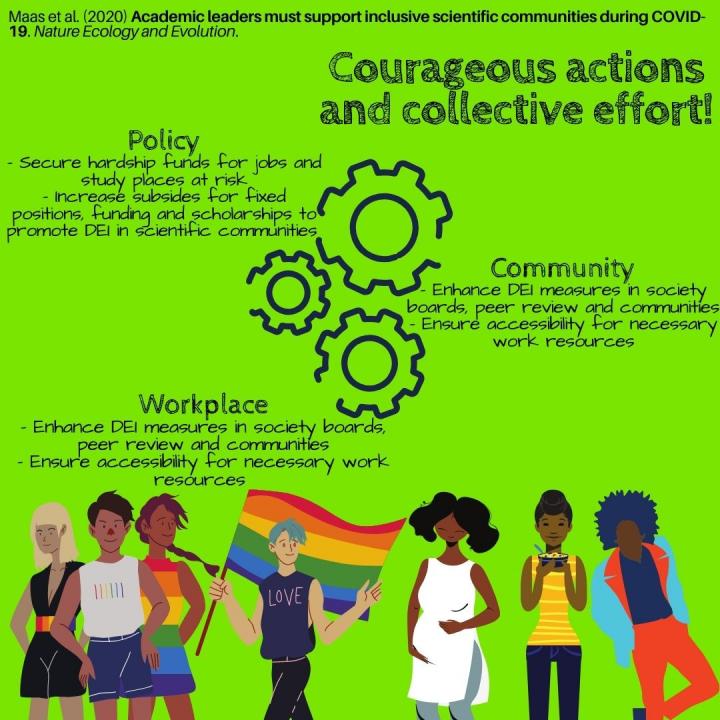International researchers demand the active protection and support of diversity, equity and inclusion in science

Credit: Rejane Santos-Silva @@rejsantossilva
In the course of the COVID-19 pandemic, scientists are facing great challenges because they have to reorient, interrupt or even cancel research and teaching. A team of international scientists with participation from the University of Göttingen published an international appeal which highlights the precarious situation of many scientists and calls for a collective effort by the entire scientific community, especially those in leadership positions, to protect decades of effort to build an inclusive scientific community. Their letter appeared in Nature Ecology and Evolution.
The coronavirus pandemic poses major challenges in particular for those scientists who are dependent on fixed-term positions or temporary visas, who have more responsibility for administration or family care, or who belong to disadvantaged social groups, especially early career researchers. According to EU reports, women in research still earn 17% less than their male counterparts, even when carrying out the same functions, and data for minority groups is generally not available. The writers emphasise the consequences that this crisis will have on early career researchers; especially those from communities historically underrepresented in science, including minorities of all genders, women, researchers from the Global South, and persons with disabilities.
“The crisis not only endangers many scientific positions and international collaborations, but also the diversity that has demonstrably made research more productive and innovative. Current and long-term consequences of the pandemic will be harder to overcome for many scientists from developing countries, who often rely on access to short-term funding for their education and research,” says co-author Carolina Ocampo-Ariza, PhD student from the Agroecology group, University of Göttingen. Diversity, equality and inclusion promote innovative perspectives that are as international as the current environmental problems and challenges. “It will require courageous action by the entire scientific community to develop solutions to threats such as global climate change and species extinction,” emphasises Dr Bea Maas, first author of the letter and guest scientist at Agroecology Group, University of Göttingen.
In summary, the recommendations of the international team of scientists are as follows: “We call on the international scientific leadership in workplaces, institutions and offices to actively protect the decades of efforts to build an inclusive scientific community through improved gender equality measures, targeted funding and increased state aid”. The authors emphasize that overcoming the acute and long-term challenges of this pandemic calls for a strong international scientific community that understands that diversity and equity are key in promoting resilient ecosystems as the cornerstones of human health and well-being.
###
Original Publication: Maas et al. (2020) “Academic Leaders must support inclusive scientific communities during COVID-19”. Nature Ecology and Evolution. DOI: https:/
Alternative link to publication: https:/
Contact:
Carolina Ocampo-Ariza
University of Göttingen
Agroecology Group
Grisebachstraße 6, 37077 Göttingen
Tel: +49 (0)174 4049841
Email: [email protected]
Website: https:/
http://peru-cacao-diversity.
Media Contact
Melissa Sollich
[email protected]
Original Source
https:/
Related Journal Article
http://dx.




